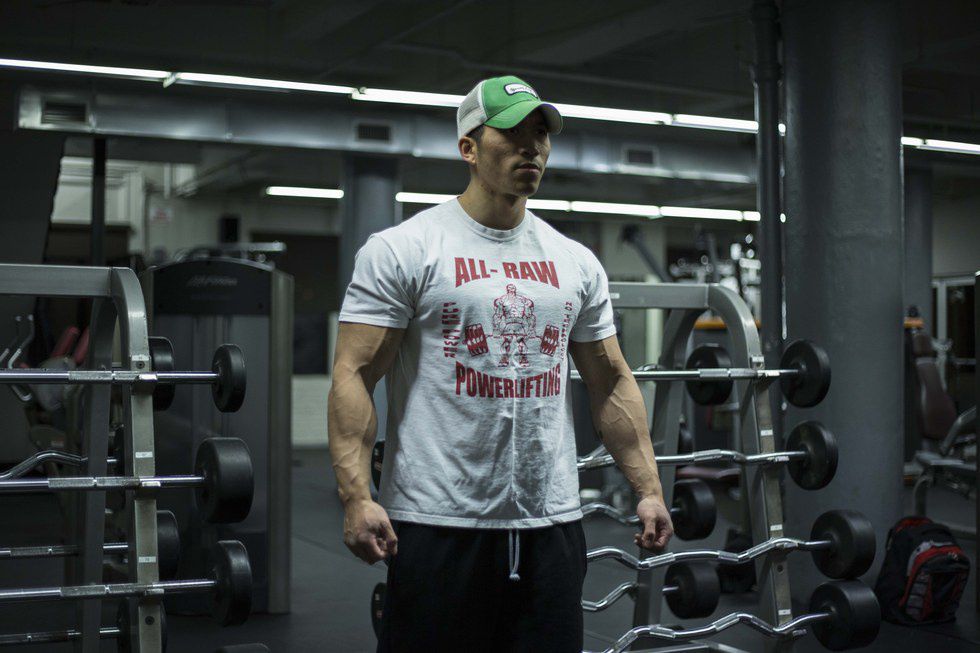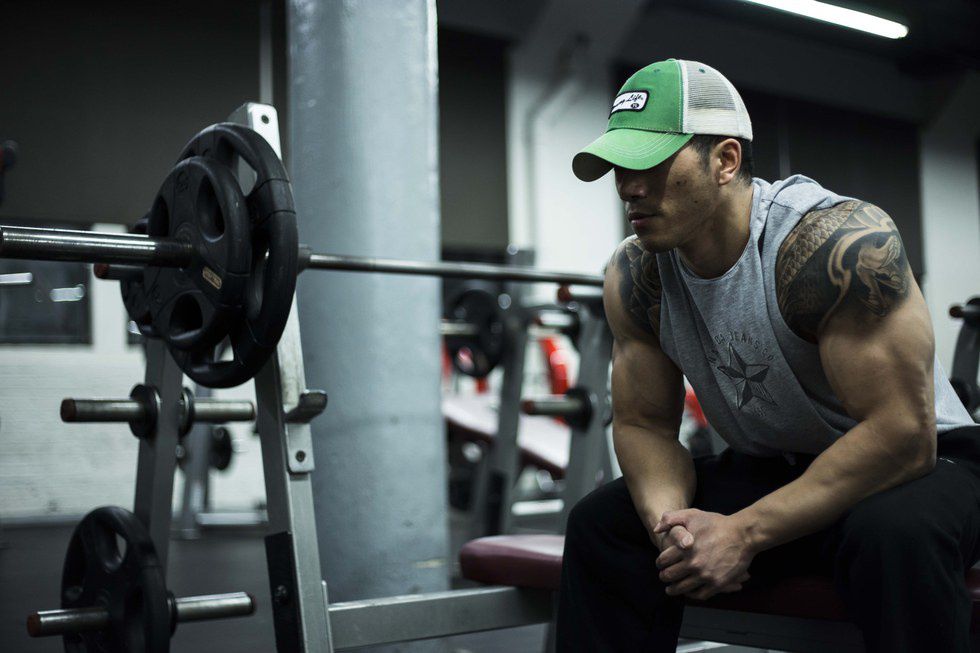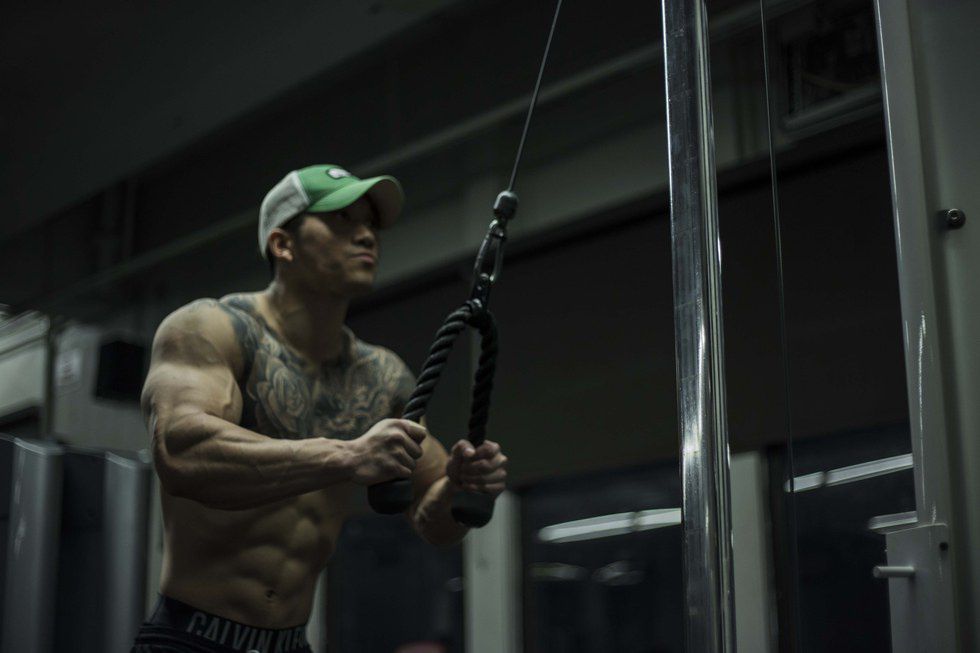Palisades Park, New Jersey — Since his early teens, Phil Choi was motivated to transform his physique into that of a bodybuilder's and through wholehearted dedication, he succeeded in doing so. However, after a freak injury at twenty-one, his dream and identity as a bodybuilder were taken away from him.
In an era dominated by self-entitlement and a generation that gives up on their dreams, Phil, at an early age, began an arduous and sacrificial trek to become a bodybuilder. Like many who dared great feats, his journey began with a vision: to create a powerful physique, unlike the "average athletic build," so that when people looked at him, they would have no other choice but to respect him for accomplishing something few in this world have accomplished.
Many, for whatever reason, do not achieve their goals as they — or I should say, we — transition between periods of unwavering dedication and tepid legalism. A study conducted by Harris Interactive on behalf of Bodybuilding.com found that "73% of people who set fitness goals as New Years Resolutions give them up."
That statistic is not a secret and is not surprising. With specific caloric intakes and scientifically studied hour-by-hour meal plans, where even protein powder must be consumed at a certain time, eating becomes meticulous and time-consuming — like a frustrating white-collar job. Adding to it, the intense and continuous physical training that pushes your body, and central nervous system, to its limit, bodybuilding is notorious for churning undedicated dream chasers into quitters. And this was exactly why Phil loved the sport: it required supreme dedication as he enslaved his mind and body to obedience, submitting them to the grueling conditions of his never-ending training regiments with sheer grit.
At his prime, "his working sets were 405 pounds on the bench press, 475 pounds on the squat and 405 pounds on the deadlift." Curious, I asked him if he could clarify what a working set was.
He explained, "A working set for me was eight to twelve reps." Bleacher Report states that "the average gym guy can bench-press 175 pounds... an intermediate lifter can squat 285 pounds..." From what I've seen over the past decade, that's not a far-fetched observation. I've only seen few attempt to squat that much weight, and even fewer — including some monstrous athletes — squat 475 pounds eight to twelve times. Bodybuilder or not, anyone who squats that much weight that many times should be proud of their accomplishment.
Years ago, I had the opportunity to hang out with Phil at Rutgers University. From first glance at the gym, he's the guy everyone wants to be; unbeknownst to me, he was crippled months before and was battling the residual effects of his injury. Outside of the gym, I remember listening to a rap song he wrote: a raw song that confronted certain institutions by asking, point-blank, why they didn't care about his friends' difficulties.
His rawness — his ability to fearlessly and freely say it as it is — is one trait I admired and appreciated throughout our conversation — especially as he discussed the private details of his injury.
A couple years ago and for reasons unknown, he suddenly lost the ability to walk for six months. After visiting a dozen different doctors, he learned that he had symptoms of Rheumatoid Arthritis. Rheumatoid Arthritis is an autoimmune disease where the body's immune system, one that normally attacks viruses and bacteria, accidentally attacks the joints. At twenty-one years old, Phil found himself battling a disease that normally affects middle-aged and older people.
Because doctors did not know when, or if, he would recover, they prescribed Humira, a specialty medication with side effects that could potentially limit what its recipient could do in the future. Stuck between a rock and a hard place, Phil went against his doctor's instructions and chose to wait: the potential risks to his future outweighed the physical comforts of pain management.
The toughest blow, in addition to the grave physical consequences he suffered, was delivered when he was alone in the hospital. He explained, "Until this point, I was a competitor. Bodybuilding defined me. In the hospital, I didn't know who I was anymore." Similarly, once-undefeated MMA fighter Ronda Rousey shared how she questioned her existence after losing a fight to Holly Holm in brutal fashion. What do you do when everything you knew, and therefore was, is taken away from you?
Irregardless of your preferences, such an experience forces you to change and there's nothing anyone can do about it. Your character is molded through the fire. Look: Phil, once the skinny Asian kid, worked day and night to achieve a physique that most teenage males dream of. Not only did he lose the fruits of his hard work, he had to come to grips with the understanding that he may never achieve his dream, or have the ability to work towards it. Unlike many of us, he put in the work and in my opinion, it was unfair that this was taken away from him.
But his response to my question — "What is your vision now?" — caught me off guard and gave me chills.
Candidly, he replied:
"It's to get people in shape and get them feeling better. It's a big part of what I do when I train people. I focus a lot on motivating. It transcends physical training... motivated to do better at your job, to take your passion to the next level, to take risks... It's just about motivating people."
Here was a guy who successfully motivated himself through a long stretch of time to transform his physique and develop almost-abnormal strength. After his injury and after he lost the ability to compete, it was clear that his priorities now shifted towards helping others.
For most of the remaining time we had left together, he talked about his desires to truly motivate others: through social media, during his job as the personal training director of Fitness Factory and through his brand. His new vision was the pinnacle of our entire interview, as if every painful step and fleeting flicker of hope were, in essence, blessings in disguise that refined his deepest desires in the dark pits of his suffering. I didn't understand the vastness of his response until after I finished writing this article.
As I start to unplug my Macbook charger and clean my working area before heading to the gym, I couldn't get over the fact at how humble he was throughout the entire interview. After returning from a hiatus at the gym, I've recently been frustrated that I can't lift as much as I used to; in a couple of weeks, I'll be able to squat 225 pounds again because 225 isn't an insane amount of weight. As someone who was once lifting 400+ pounds for eight-twelve reps, Phil told me that while he misses those days, "it's not a big deal."
"It's not a big deal not lifting that much. The experience humbles you to the point it doesn't really bother you."
Healthy and motivated, my friends and I may never understand the amount of suffering one has to endure to reach that peaceful place of humble clarity.
Regardless of the adversity life throws at us, Phil reminds everyone that we can still become the best versions of ourselves — becoming possibly better than we ever were when we remained comfortable in our seemingly-perfect and adversity-free circumstances.
























